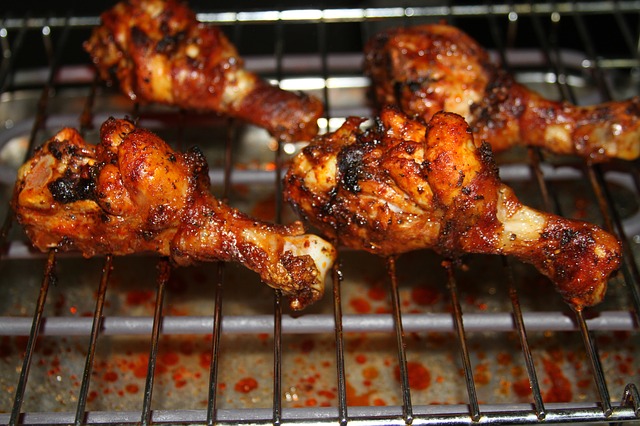Dehydrating food is a very common way to keep food healthy and tasty while also extending its shelf life. Just about every food can be dehydrated, from herbs, vegetables, fruit, and meat.
You can dehydrate food if you want to store it for long periods of time or if you just want to save it for later. If you have a dog and don’t want to spend more money on buying them expensive doggie treats, you can make your own using your own ingredients and a food dehydrator machine.
Steps to Dehydrate Food
There are a lot of aspects to drying food though, if these are not considered carefully and executed properly, your dehydrated snack could very well spoil quickly.
So before we discuss how to keep your dehydrated food dehydrated, let’s take a look first at some of the steps you should take before dehydrating and storing your dehydrated foods.
Preparation
In order to properly prepare food for dehydration, make sure that you have checked the food for any molds, insect eggs, or any unwanted organisms. Make sure that you wash the food well and keep it free from any sort of bacteria.
When preparing firm vegetables like potatoes, carrots, peas, corn, or broccoli, make sure that before you dry them, you blanch them first in boiling for a minimum of 3 minutes and a maximum of 5 minutes to soften the vegetable and for it to retain its color while also shortening its dehydration time.
Also make sure that when you put your food into the food dehydrator, set the right temperature based on the specific dehydration times of specific foods. Make sure that you know how to operate your food dehydrator and you know its controls.
Dehydration
The most common way of dehydrating food is by using a food dehydrator machine. These machines come with instructions on how to efficiently and properly use them.
Food dehydrators usually have their own unique set of controls and such so using their respective manual and instructions is critical to ensure the quality of your dehydrated foods.
There are other ways to dehydrate your food, if you want to dehydrate herbs, for example, you can consider a few other options for dehydration. You can dehydrate herbs via air drying, solar drying, oven drying, or by using a microwave.
Storage
Another critical part of food dehydration is how you store it. How you store it can significantly increase the shelf life of your dehydrated food. Storing your dehydrated food in a cool dark place helps it keep its nutritional values while simultaneously increasing its lifespan.
One of the suggested storage options you can consider is by using what are called “Mylar Bags”. Mylar bags prevent light and oxygen to enter the bag which helps in preserving the quality and taste of your dehydrated foods.
The Temperature of Your Storage
The lower the temperature of where you store your dehydrated food, the better. Lower or colder temperatures significantly increase the shelf life of your food.
You can also refrigerate your dehydrated food or store them in a freezer because these types of storage are dark and cold.
The Moisture Content of Your Storage
The higher the moisture content present in your storage, the higher the chances of bacteria and other harmful organisms to survive in your storage with your dehydrated food. The lesser the moisture content of your storage, the longer the shelf life of your food.
The Oxygen Content of Your Storage
The oxygen content of your storage will also affect the shelf life and long-term quality of your dehydrated food. The more oxygen in your storage increases the spoilage rate of your dehydrated food.
You can use oxygen absorbers to absorb the oxygen in your storage and prevent your food from spoiling quickly. These are largely available in stores and markets, make sure to purchase food-grade OA’s because there are different grades of OA’s.
Observing and Checking on Your Stored Dehydrated Foods
Once you’ve prepared, dried, and stored your food, now you have to check on them periodically and rotate through them every 2 to 3 months to ensure their nutrition and quality.
All of these steps are important when you’re considering dehydrating your food and when you’re thinking about how and where to store it.
Following these steps and tips accordingly will ensure the quality of your dehydrated food while keeping it delicious and nutritious.

How long does dehydrated Chicken Last?
Chicken is a favorite of many kids and adults alike because it is a great source of protein and it is just so delicious. Now a lot of foods are dehydrated to keep them healthy and nutritious while also preserving and extending their life. Here is a quick list of food that can be dehydrated to keep their nutritional values while extending their shelf and storage life:
- Various Fruit including apricots, strawberries, raspberries, blueberries, peaches, and figs.
- Vegetables including carrots, beans, corn, broccoli, and tomatoes.
- Meat products such as beef, pork, chicken, turkey, and even wild game like deer meat.
- Herbs that include anise, bay, celery, caraway, celery, chervil, cumin, dill, fennel, geranium, lemon balm, summer savory, tarragon, and thyme.
Before we see how long dehydrated chicken lasts, let’s see how to prepare chicken for dehydration first. Like other food types, you need to use a food dehydrator to dehydrate your chicken product. When dehydrating meat, make sure to follow the appropriate preparation methods depending on the dehydration tool of your choosing.
After you dehydrate your chicken and follow the proper storage instructions, you can expect your chicken to last for about 1-2 months. Given that you followed all the given instructions for preparing dehydrated meat and stored it properly, this is the general lifespan of a dehydrated chicken.
To further extend the lifespan of your chicken, you can use “Mylar Plastic Bags” to store your chicken because Mylar is one of the best containers you can use for food. Mylar is impervious to light and prevents air from entering the bag, thus increasing it’s shelf life.
Adding OA’s or “Oxygen Absorbers” will also significantly help in increasing the lifespan of your chicken because these absorbers help in reducing the oxygen content in your storage area or container to prevent the chicken from going bad quickly.
Dehydrating various food types such as chicken can provide quick easy to grab snacks that still retain their nutritional values even when stored for long periods of time. Keep in mind though that when storing dehydrated stocks of food, make sure you rotate through them regularly to prevent your food from rotting and getting wasted.
When dehydrating food, follow the appropriate preparation instructions and storage suggestions help significantly in increasing the general shelf life of your food. So make sure to be cautious and smart when dehydrating your food and follow all instructions carefully.
Why Keep Dehydrated Food for Survival?
In many parts of the world, dehydrating is very necessary and common to keep them healthy, nutritious, while also keeping their taste. In other parts of the world, dehydrating food is part of their rich history and culture. No matter where you live or where you’re from, you can benefit from dehydrating food.
Storing dehydrated food has a lot of benefits both long-term and short-term. Since dehydrated food lasts longer than most non-dehydrated foods, you can leave them idle for long periods of time and they’ll still be healthy and nutritious once you decide to consume them or cook them.
If you’re looking for a quick snack, you can head to your storage of dehydrated foods and grab a dehydrated apple and turn them into apple chips for a healthy salad or bowl of cereal. The same can be done for bananas, you can dehydrate them and use them later to make dried banana chips.
If you want to store dehydrated stocks of food for a later date, you can do that too. If you prepare, store, and dehydrate your food appropriately, it can last for months. Just make sure to check on them regularly for molds or spoilage.
So overall, dehydrated foods bring many benefits to you can your family. If done right, you can have stocks of food you can consume at a later date that you can survive on for months. Just make sure to follow the correct steps and methods to prepare, dehydrate, and store your food.

Picking the Right Dehydrated Chicken Recipe When On the Road
Among the common reasons why people choose to dehydrate their chicken is because they are going on the road for a long trip.
If this is the same case with you, then you need to pick easy-to-prepare and easy to cook dehydrated chicken recipes that are not only tasty but are also healthy enough to feed your family on the road.
To make sure you get the right recipe, you need to pick ones that require ingredients that can be locally found where you are headed. There are instances when you want to cook a recipe using dehydrated chicken but the main ingredients are not readily available. This will make the dish taste bland.
Remember that even though dehydrating your chicken would keep it viable for eating, it does not completely retain the natural taste of chicken. For this reason, you might need to use different types of spices and marinate your chicken before you actually cook it to replenish the taste that was taken away during the dehydration process.
It would also help to add in fresh fruits and vegetables if they are available to support the health benefits you could get from your meal.
Considerably, this will not be easy if your destination is far from a market. Individuals and families who go out camping in their camper vans to enjoy the wild often end up having to sacrifice the taste of their meals while they are camping. This does not need to be the case all the time.
With the right ingredients and the right spices, even dehydrated food can taste as great as the ones you cook fresh at home.
Key Takeaways
In general, a well dehydrated chicken will store for around 3 months or more, depending on your storage location and if you added oxygen absorbers or not.
Never forget that when it comes to dehydration, there are several key factors that you need to consider. First is the cleanliness of the preparation process. Two is the temperature of the storage container or storage bag you are going to use. And three is the safety of the storage where you are going to put in your bagged dehydrated chicken. All these factors will directly affect the quality and shelf-life of the chicken you are going to store for later consumption.
Picking the best recipes for cooking dehydrated chicken will surely leave you satisfied and nourished up to the time when you can eat fresh chicken again. There is no need to sacrifice the taste of your meals when you are away camping or traveling, even when you are dealing with an emergency that leaves you no choice but to eat dehydrated food.


